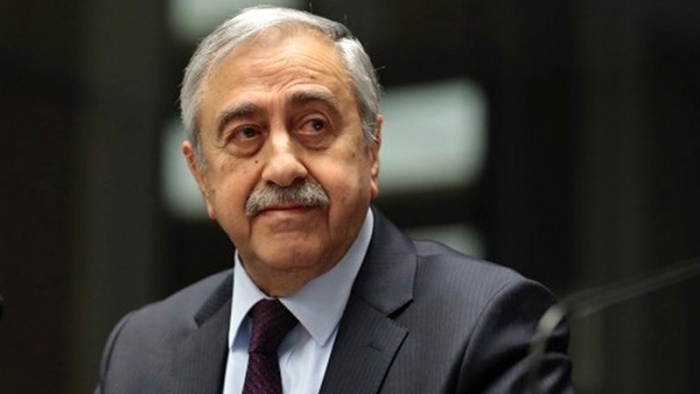Mustafa Akıncı, president of the Turkish Republic of Northern Cyprus (KKTC), has been involved in a war of words with Ankara officials since an interview with the British press last week, Euronews Turkish service reported on Sunday.
“I stand by my remarks, which I’m not saying for the first time,” Akıncı said in response to harsh criticism from several Turkish officials over his interview with The Guardian. “While I can guess the reasons behind the aggressive rhetoric against me, I consider it baseless and vulgar.”
In an interview on Thursday the Turkish Cypriot leader told The Guardian that the differences between the two sides are growing more entrenched and that the Mediterranean island faces permanent partition of its Greek and Turkish communities unless an agreement is swiftly reached involving an “equitable” federal solution.
“We need to hurry up. After all these years we have come to a crossroads, a decisive moment,” Akıncı said, adding that the Turkish north would grow increasingly dependent on Ankara if reunification failed, ending up being swallowed up as a de facto Turkish province.
Akıncı’s comments have led to harsh reactions in the Turkish capital, particularly among officials of the ruling Justice and Development Party (AKP) and its extreme right-wing ally, the Nationalist Movement Party (MHP).
“It is obvious that Mustafa Akıncı does not deserve the post he occupies. That’s why it is imperative that he resign as president,” Devlet Bahçeli, leader of the MHP, said on Saturday, accusing Akıncı of “turning his back on Turkish nation, to which he is supposed to be grateful.”
AKP spokesperson Ömer Çelik tweeted that Akıncı “needs to apologize for his disrespect towards the Republic of Turkey.”
Fahrettin Altun, the communications director for the Turkish presidency, had harsher words for the northern Cypriot leader: “The Turkish nation will let Mustafa Akıncı know his place by punishing this impudence at the ballot box.”
“I have never worked with such a dishonest politician. This is unbecoming for the Turkish Cypriot people,” Turkish Minister of Foreign Affairs Mevlüt Çavuşoğlu said on Monday.
Akıncı’s relations with Turkish President Recep Tayyip Erdoğan have recently been strained, The Guardian pointed out. In November Akıncı criticized Turkey’s military incursion into northern Syria, to which Erdoğan responded by saying the Turkish Cypriot leader should “know his limits,” adding that the electorate would soon “teach him a lesson.”
In April Akıncı is likely to face outspoken pro-Ankara populist Ersin Tatar as an election run-off rival, The Guardian said. Tatar opposes reconciliation with the south and favors a two-state solution. He enjoys strong support from Erdoğan and from Turkish settlers who have migrated in large numbers from the mainland, changing the island’s religious and cultural makeup.
Turkey had intervened as a guarantor power in Cyprus in 1974, following a coup aimed at the island’s annexation by Greece. The KKTC was established in 1983 and is recognized only by Ankara.

